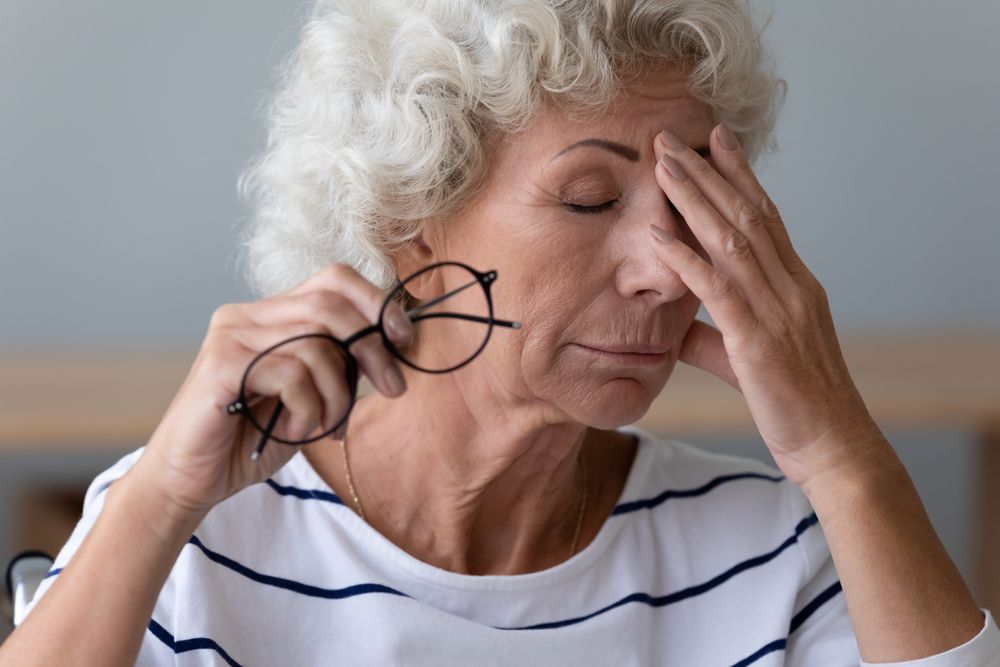At Colorado Eye Clinic in Greenwood Village, Denver, CO, Dr. Abed Namavari reminds patients that eye health is closely tied to overall wellness. One of the most significant connections is between high blood pressure, also known as hypertension, and vision loss. Often referred to as the “silent killer,” hypertension can quietly damage organs throughout the body, including the eyes, without noticeable symptoms in its early stages. Over time, uncontrolled high blood pressure places strain on the delicate blood vessels of the retina, leading to vision-threatening conditions.
Understanding this link is crucial for patients of all ages, particularly since hypertension is common and often goes undetected. Routine eye exams can reveal changes caused by elevated blood pressure before other symptoms appear, making eye care a valuable part of managing overall health. Patients who monitor their blood pressure and stay proactive about eye care are better equipped to protect their vision.
How High Blood Pressure Affects the Eyes
High blood pressure exerts continuous stress on blood vessels, causing them to thicken, narrow, or leak. In the eyes, this damage is most evident in the retina, the light-sensitive tissue at the back of the eye responsible for sharp central vision. The condition resulting from this damage is called hypertensive retinopathy. In its early stages, hypertensive retinopathy may cause no symptoms, but as it progresses, patients may experience blurred vision or even sudden vision loss.
Hypertension can also contribute to other serious eye diseases. It increases the risk of retinal vein occlusion, a condition where blood flow from the retina is blocked, leading to swelling and hemorrhaging. Additionally, high blood pressure can accelerate the development of age-related macular degeneration and worsen complications in patients with diabetes. These connections highlight why controlling blood pressure is not only critical for heart health but also essential for maintaining clear vision.
Warning Signs to Watch For
Although early damage from high blood pressure may not cause symptoms, certain changes in vision should prompt immediate attention. These include sudden blurring of vision, double vision, headaches accompanied by eye pain, or the appearance of floaters and flashing lights. Swelling around the optic nerve, called papilledema, can also occur in severe cases of hypertension and may be a sign of dangerously high blood pressure requiring urgent medical care.
Patients with chronic hypertension may also notice gradual declines in visual clarity. Routine dilated eye exams are important because they allow ophthalmologists to directly observe the retinal blood vessels, detecting subtle changes before they impact daily life. By recognizing these early warning signs, patients can take action sooner, protecting both their sight and their general health.
Long-Term Risks of Uncontrolled Hypertension
If left untreated, high blood pressure can cause irreversible damage to the eyes. Persistent stress on blood vessels leads to cumulative damage, raising the risk of permanent vision impairment. Severe hypertensive retinopathy can cause scarring, hemorrhaging, and detachment of the retina. In some cases, uncontrolled hypertension can even result in sudden blindness.
Beyond the eyes, hypertension is a major risk factor for stroke, heart attack, and kidney disease, all of which can indirectly affect eye health. For example, a stroke involving the visual cortex of the brain may cause vision loss even if the eyes themselves are healthy. These long-term risks underscore the importance of managing blood pressure consistently with lifestyle changes, medication, and regular monitoring by healthcare professionals.
Protecting Vision Through Prevention
The most effective way to protect vision from high blood pressure is through prevention and early detection. Lifestyle adjustments such as maintaining a balanced diet, exercising regularly, limiting salt intake, and avoiding smoking play a major role in keeping blood pressure within a healthy range. For many patients, medication may also be necessary to achieve control.
Regular visits to an ophthalmologist provide additional protection. Eye exams allow for close monitoring of retinal health and early detection of hypertensive changes. By combining medical management with eye care, patients can reduce the risk of vision loss while improving overall health. Staying informed and proactive makes a significant difference in long-term outcomes.
Conclusion
At Colorado Eye Clinic in Greenwood Village, Denver, CO, Dr. Abed Namavari emphasizes that high blood pressure is not just a heart concern—it is also a serious threat to vision. Hypertension silently damages the delicate structures of the eyes, leading to conditions that can cause permanent vision loss if left unchecked. By understanding the link between blood pressure and eye health, patients can take meaningful steps to protect their sight through prevention, regular exams, and consistent blood pressure management. Clear vision and a healthier future depend on taking this connection seriously.
Resources
- Wong, T. Y., & Mitchell, P. (2007). Hypertensive retinopathy. New England Journal of Medicine.
- Keith, N. M., Wagener, H. P., & Barker, N. W. (1939). Some different types of essential hypertension: Their course and prognosis. American Journal of the Medical Sciences.
- Hayreh, S. S. (2011). Management of retinal vein occlusion: Current concepts. Indian Journal of Ophthalmology.

